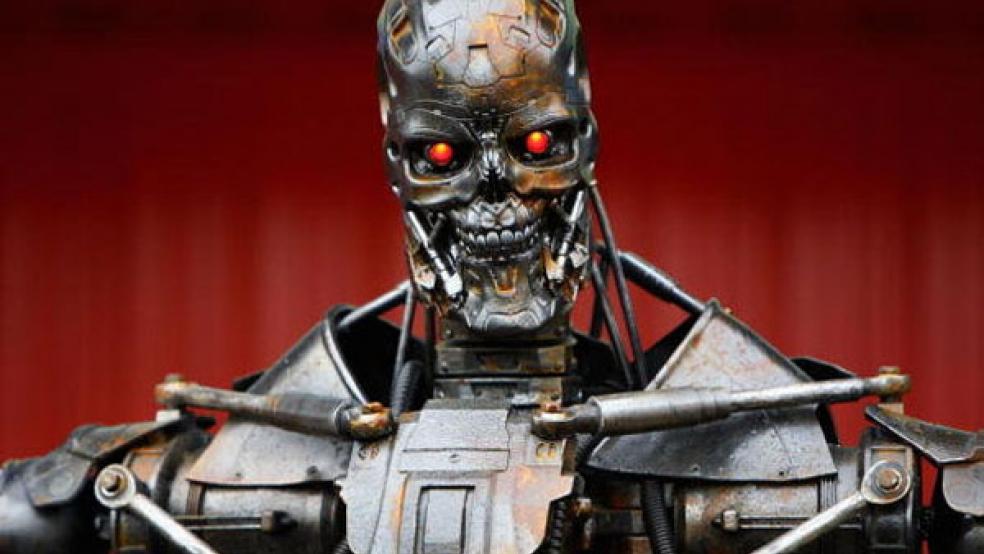Technology has continuously changed the face of warfare, from the pointed rock to gunpowder to the nuclear bomb. The next revolution — killer robots — is potentially only years away, prompting some of the brightest minds in science and technology to issue an open letter last week denouncing the development of such weapons and warnings that an arms race for autonomous weapons could result in disaster.
The initial signers of the letter — including physicist Stephen Hawking, Apple co-founder Steve Wozniak and Elon Musk, founder of Tesla Motors and SpaceX, among others — have since been joined by more than 16,000 others, including 2,500 researchers in artificial intelligence and robotics.
Related: 12 Jobs We’re Losing to Robots
The letter, presented at International Joint Conference on Artificial Intelligence in Buenos Aires, describes a situation in which the autonomous weapons would inevitably fall into the vicious hands of terrorists, dictators or warlords set on ethnic cleansing. But some militaries already have automated weapons systems in their arsenal, though those systems still rely on human oversight.
The “Iron Dome” system in Israel detects and destroys incoming rockets. U.S. naval combat ships use a system called “Phalanx CIWS” that carries out the same tasks but with a swiveling Gattling gun. The U.S. Army can do the same on land with its C-RAM system.
The letter did acknowledge that autonomous weapons have been the subject of debate, with some arguing that replacing human soldiers with robots or automated weapon systems could reduce casualties. Others contend that robot soldiers would only make armed conflicts more likely. Since robots lack emotion—at least so far—they’d also be able to perform their deadly tasks without losing their temper, becoming afraid or losing their nerve.
Related: The New Generation of ‘Genuinely Creepy’ Electronic Devices
In response to the open letter, Jai Galliott, a robotics researcher and proponent of killer robots, argued that since autonomous weapons of some sorts already exist, and there hasn’t been a huge outcry against them, the new warning is really about the development of sentient robots — machines that can think for themselves.
We might all be familiar with that idea from the movies, but Galliott contends that sentient machines won’t become real for various reasons, meaning that any autonomous system we can develop is still the responsibility of programmers, engineers, scientists or military commanders. Rather than banning killer robots, Galliott says we should just implement more effective regulations about their use.
The debate is likely to rage on. The question is whether governments that might want to develop these autonomous weapons systems will bother to pay attention. These moral questions have been raised before around everything from nuclear weapons to genetic engineering to cloning. All of these technologies continue to be developed.





